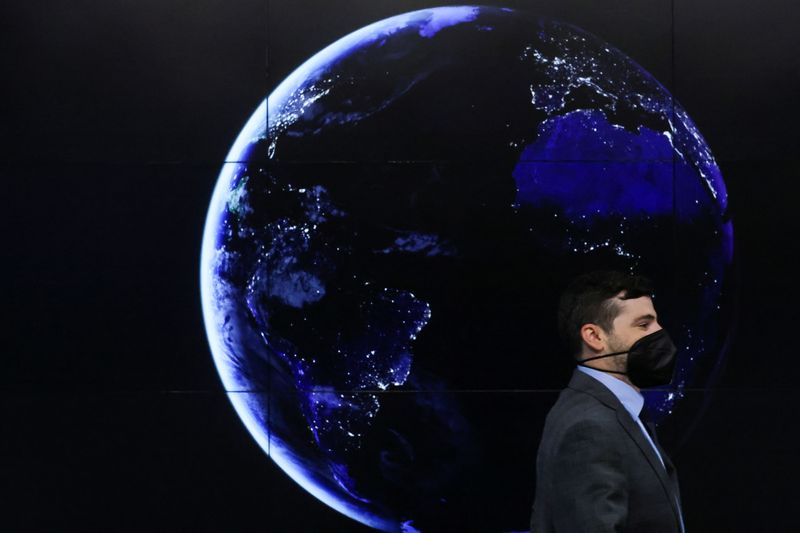By Jeff Mason
WASHINGTON (Reuters) - The White House sent an international agreement that requires countries to phase down greenhouse gases frequently found in refrigerators and air conditioners to the U.S. Senate on Tuesday for ratification.
The so-called Kigali amendment to the Montreal Protocol is a global treaty to reduce hydrofluorocarbons, or HFCs, that was adopted in 2016 but that the United States has not yet ratified. The amendment calls for the phase-down of HFCs, gases that are significantly more potent than carbon dioxide in contributing to global warming.
The move comes shortly after President Joe Biden's trip to Glasgow, Scotland, for the U.N. climate conference. Biden has pledged that the United States will cut its greenhouse gas emissions by 50%-52% by 2030 compared with 2005 levels.
Senior administration officials told Reuters that worldwide implementation of the amendment could prevent as much as a half degree Celsius (0.9 F) in warming by the end of the century.
Biden, in a message to the Senate, urged ratification "at the earliest date" and said it would help the United States remain a leader in developing alternatives to HFCs and give American businesses access to growing refrigeration and cooling markets abroad.
"Ratification will also ensure the United States continues to have a full voice to represent U.S. economic and environmental interests as implementation of the Kigali Amendment moves forward in coming years," he said.
In September, the U.S. Environmental Protection Agency finalized a rule that would slash the use of HFCs by 85 percent over the next 15 years. The rule carries out legislation that was passed with bipartisan support by Congress last year and would make the United States compliant with the Kigali amendment.
Administration officials noted bipartisan support for tackling the issue in the past. The request for the Senate to ratify comes shortly after Biden on Monday signed a $1 trillion infrastructure bill into law that passed with support from his fellow Democrats and some Republicans.
The 100-member Senate is split between the two parties, although Democrats have the majority with Vice President Kamala Harris' tie-breaking vote. Senate ratification of international treaties requires two-thirds approval.

Industry groups praised the president for sending the amendment to the Senate and urged swift ratification.
“Ratification of the Amendment – which we hope will be expeditious – will create the certainty necessary for U.S. companies to solidify their natural technological advantage in both refrigerants and manufacture of the equipment that uses them," Stephen Yurek, president of the Air-Conditioning, Heating and Refrigeration Institute, a trade association, said in a statement.